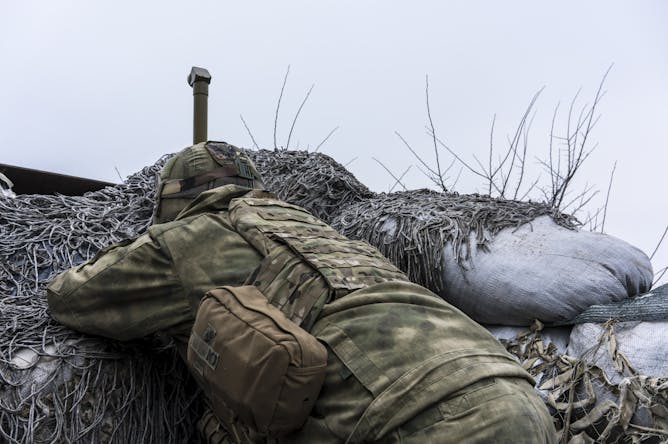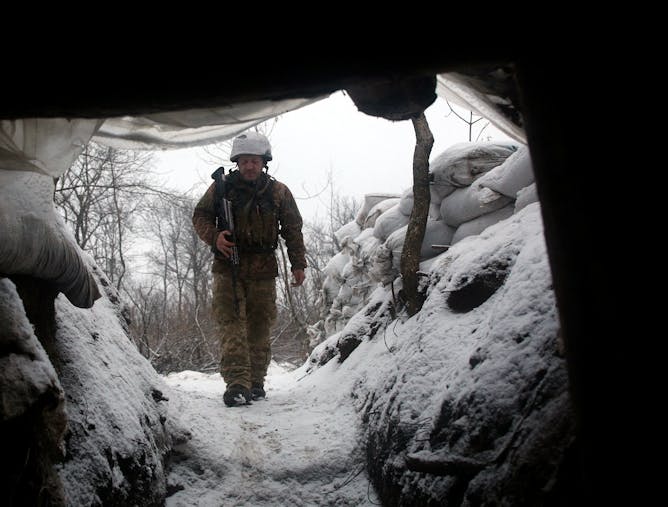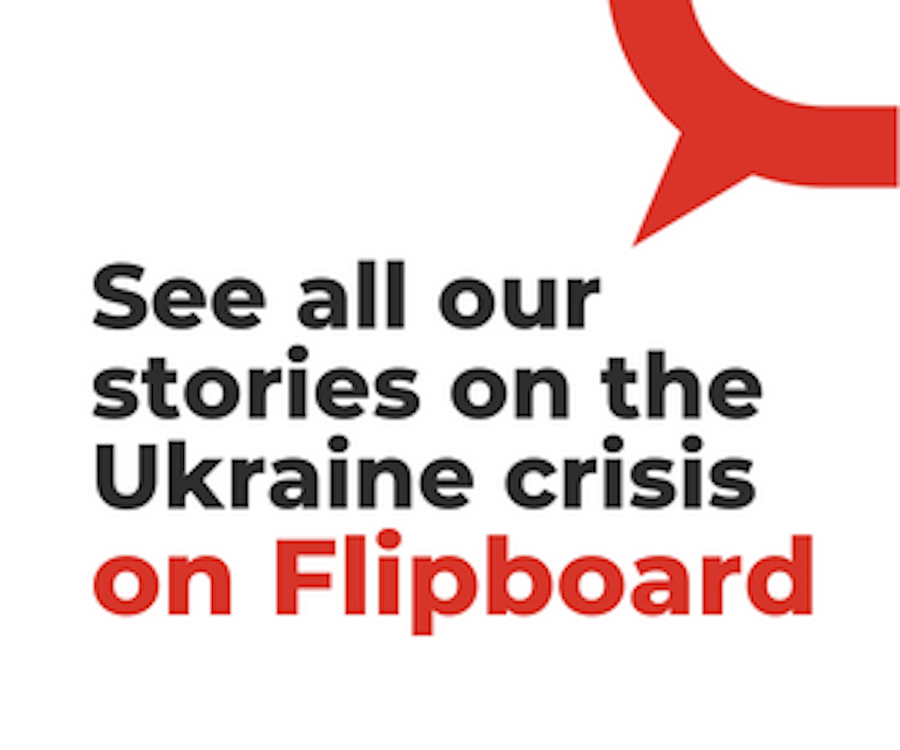Russia invades Ukraine – a special newsletter
|
Older messages
Popular opinion in Russia backs Putin – but that may not last
Wednesday, February 23, 2022
+ tips for navigating a challenging tax season; homeless students
Are farmers seeding trouble in their fields?
Tuesday, February 22, 2022
+ 5 essential reads on Ukraine-Russia crisis
Why Russia's threat of invasion is personal for Ukrainian Americans
Monday, February 21, 2022
+ Olympics in a warming climate; presidential morals
'Dunk scientist' reveals flaws in how slam dunk contests are judged
Saturday, February 19, 2022
+ what delayed Toshio Mori's first novel
Could Russia pull off a false flag attack?
Friday, February 18, 2022
+ what and why is the IOC?
You Might Also Like
📬 No. 71 | Newsletters every newsroom should launch
Wednesday, March 19, 2025
These 13 formats work great for publishers. Should you try them too? ͏ ͏ ͏ ͏ ͏ ͏ ͏ ͏ ͏ ͏ ͏ ͏ ͏ ͏ ͏ ͏ ͏ ͏ ͏ ͏ ͏ ͏ ͏ ͏ ͏ ͏ ͏ ͏ ͏ ͏ ͏ ͏ ͏
Animals have culture, too – but we do have something they don't
Wednesday, March 19, 2025
+ do you need measles vaccine? When you were born matters
⚔️ ‘Assassin’s Creed Shadows’ Falls Short Of Greatness
Wednesday, March 19, 2025
Plus: 'The Penguin's Colin Farrell might star in yet another DC project. Inverse Daily Assassin's Creed Shadows is a visually stunning game that trips over some of its more baffling design
A Less-Expensive Vitamin C Serum That Works
Wednesday, March 19, 2025
Rachael Griffiths tried out Clinique's reformulated dark-spot-correcting serum. The Strategist Beauty Brief March 19, 2025 Every product is independently selected by editors. If you buy something
☕ Open discourse
Wednesday, March 19, 2025
DeepSeek chatter at HumanX. March 19, 2025 View Online | Sign Up Tech Brew Presented By Notion It's Wednesday. At HumanX last week, DeepSeek was still a hot topic, specifically for open model
Silencing Voice of America
Wednesday, March 19, 2025
Plus: Soccer in Israel and Palestine, a maybe ceasefire, and Kamala Harris's loss. View this email in your browser March 19, 2025 A man in black walks head bowed down stairs at sunset. Behind him,
Are the people who Trump sent to a Salvadoran prison actually gang members?
Wednesday, March 19, 2025
On March 15, President Trump signed a proclamation invoking the Alien Enemies Act of 1798. ͏ ͏ ͏ ͏ ͏ ͏ ͏ ͏ ͏ ͏ ͏ ͏ ͏ ͏ ͏ ͏ ͏ ͏ ͏ ͏ ͏ ͏ ͏ ͏ ͏ ͏ ͏ ͏ ͏ ͏ ͏ ͏ ͏ ͏ ͏ ͏ ͏ ͏ ͏ ͏ ͏ ͏ ͏ ͏ ͏ ͏ ͏ ͏ ͏ ͏ ͏ ͏ ͏ ͏ ͏
Numlock News: March 19, 2025 • Daredevil, Slugging, Rap Battle
Wednesday, March 19, 2025
By Walt Hickey ͏ ͏ ͏ ͏ ͏ ͏ ͏ ͏ ͏ ͏ ͏ ͏ ͏ ͏ ͏ ͏ ͏ ͏ ͏ ͏ ͏ ͏ ͏ ͏ ͏ ͏ ͏ ͏ ͏ ͏ ͏ ͏ ͏ ͏ ͏ ͏ ͏ ͏ ͏ ͏ ͏ ͏ ͏ ͏ ͏ ͏ ͏ ͏ ͏ ͏ ͏ ͏ ͏ ͏ ͏ ͏ ͏ ͏ ͏ ͏ ͏ ͏ ͏ ͏ ͏ ͏ ͏ ͏ ͏ ͏ ͏ ͏ ͏ ͏ ͏ ͏ ͏ ͏ ͏ ͏ ͏ ͏ ͏ ͏ ͏ ͏ ͏ ͏ ͏ ͏ ͏ ͏ ͏
Deadly Fires in Oklahoma, Astronauts Return, and Rafting Iguanas
Wednesday, March 19, 2025
Oklahoma wildfires killed four, injured at least 200, and destroyed over 400 homes as high winds and storms sparked nearly 150 fires across the state. ͏ ͏ ͏ ͏ ͏ ͏ ͏ ͏ ͏ ͏ ͏ ͏ ͏
☕ Gee Wiz
Wednesday, March 19, 2025
Google makes its biggest acquisition ever... March 19, 2025 View Online | Sign Up | Shop Morning Brew Presented By Miso Robotics Good morning. Home at last! Yesterday evening, NASA astronauts Suni



